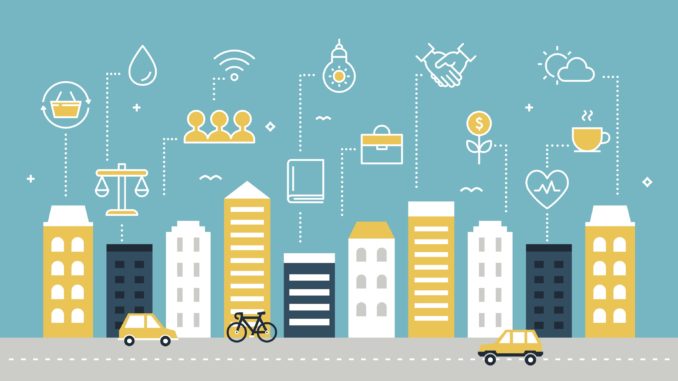
Helen Burge, deputy COO at The Priory Learning Trust, discusses how you can help your school become more sustainable
COP26 – the United Nations Climate Change Conference will be taking place in Glasgow this November. COP stands for the ‘Conference of the Parties’ – these are the signatories of the 1994 United Nations Framework.
This is their 26th meeting – and what an important conference it will be, following a summer of alarming evidence of the impact of our planet warming up, with devastating and deadly forest fires in Greece, Turkey, Italy, Russia, France, Portugal, Australia, Romania, North America, South America and Canada. I was also shocked to hear that Russia now has the opportunity to compete with the Suez Canal by providing a 15-day faster shipping route compared to the Suez route, as the Arctic ice cover is receding and allowing a shipping route all year round.
“No challenge poses a greater threat to future generations than climate change.”
Barack Obama
We really are facing a climate emergency. The scientific evidence is clear that human activity is increasing the emissions of greenhouse gases, which is causing our climate to change. One of the most significant greenhouse gases is carbon dioxide, which is emitted when gas, coal and oil – fossil fuels (prehistoric dead animals and plants) – are burned to meet our energy demands. ‘Carbon emissions’ is the term widely used to describe the emissions of all greenhouse gases. In 2019, the UK government pledged to have net zero emissions by 2050, which that means the amount of carbon we add to the atmosphere is no more than the amount removed.
“I don’t want your hope. I don’t want you to be hopeful. I want you to panic…and act as if your house was on fire.”
Greta Thunberg
By 2050, I shall be 74 and hopefully retired. In the meantime I will act and make changes to my trust’s estate and encourage others to make changes in their school estates so that, together, we can help the UK get to net zero – and, preferably, before 2050. It’s ambitious, but how can we do it?
Start at the top and get your trustees and governors involved in creating a strategic sustainability plan which specifically addresses reducing the school’s carbon footprint. Take a look at https://letsgozero.org/ which is a national campaign for schools to collaboratively work to be carbon zero by 2030. This would mean for a school that its site and all its activities, including procurement, do not contribute towards climate change through carbon emissions.
Speak to experts – your energy consultants – about your energy procurement. If you are large enough, share with them your Streamlined Energy Carbon Report and discuss how you are currently buying power. Consider switching energy sources and, remember, no carbon for electricity generated from renewables/nuclear.
Does your estate have gas and oil boilers? Develop a heat decarbonisation plan with expert support. Use grant opportunities via SALIX, or use your CIF bids or SCA funding, to convert your fossil fuel heating plant to low carbon alternatives.
If you’re planning a new build, ask that they install heat pumps, solar panels, and a building management system which you can control easily to switch off heating, reduce the temperature – one which has a working, accurate, external thermostat to trigger the heating when it is required.
Can you generate your own energy? Do you have a surplus field or flat roofs in great condition?If so, consider solar panels. Maybe, if you have the space and the right neighbours, you could install a wind turbine?
“The future depends on what you do today”
Mahatma Gandhi
I appreciate that these are big projects which cannot all be completed within the next 12 months, but incremental changes will bring about results – and how satisfying will it be to see your carbon footprint falling year-on-year? I wonder at what point schools are going to be sharing their Ofsted outcomes alongside their carbon footprint reduction progress or even net zero status? And will it follow that parents select their child’s schools because of their net zero status?
Sustainability sustains the school’s future. So, whilst you are planning, and waiting for funding, for all these medium-to-long term projects, ensure you are using your energy well. Monitor your energy consumption. Are there spikes in the middle of the night when no one is in? Can the heating be switched off earlier? Can the thermostat go down a notch? Do you heat the school during all the term breaks? Are you servicing your boilers often enough to ensure their efficiency? Can your site teams be actively involved in reducing energy consumption and spotting where changes could be made?
You could pledge to be a zero carbon school and use the Let’s Go Zero resources to help you further develop child/student/staff friendly ideas to reduce energy consumption. Would the Eco Schools Award help your school have a collaborative focus to make changes?
This is not a one person job; involve others, and build the momentum of action to reduce your school’s carbon footprint.



Be the first to comment